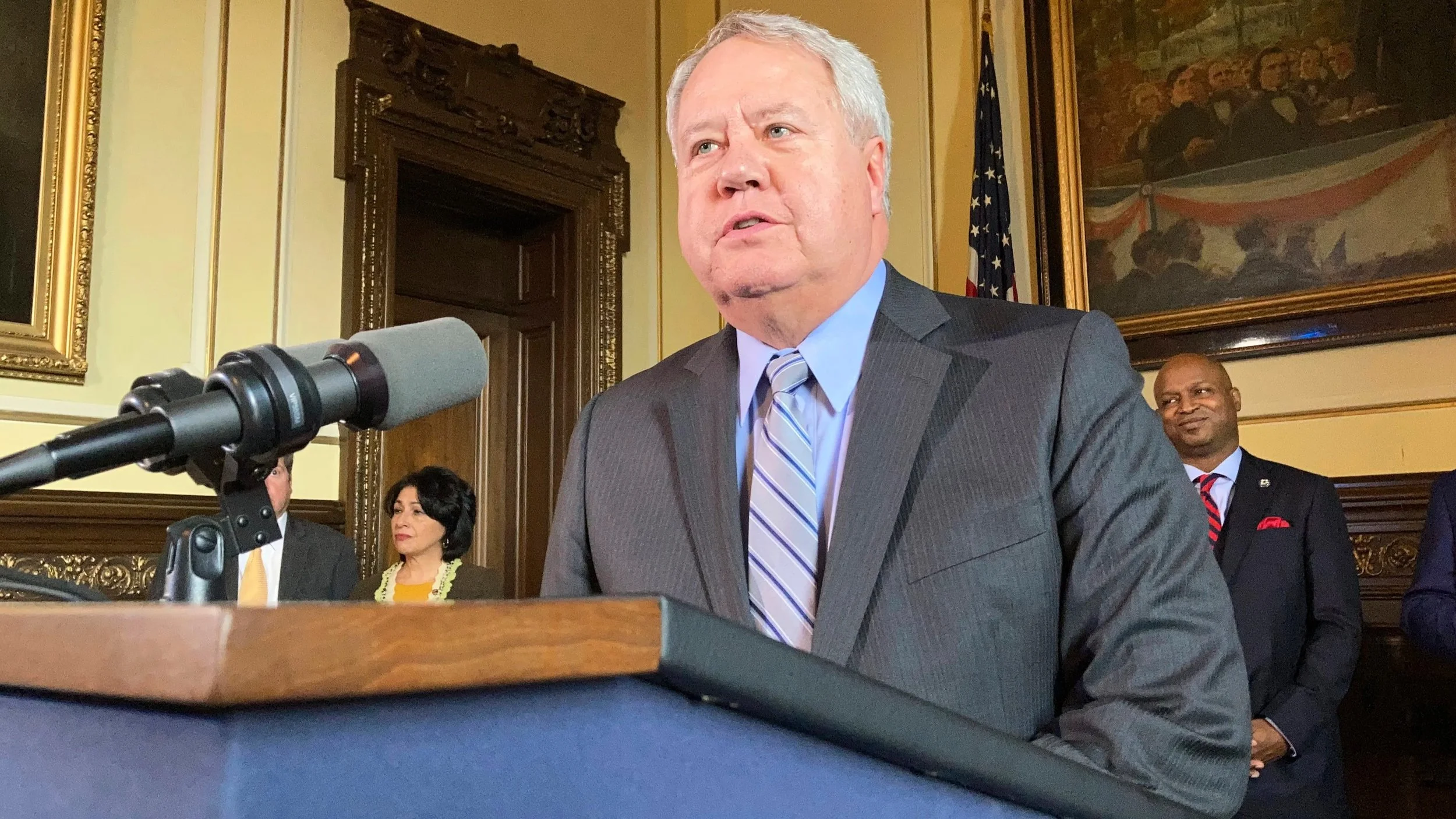What Will Get Done During Veto Session?
Rep. Jay Hoffman (D-Swansea) speaks at a news conference in 2022.
NOTE: This story was originally posted for subscribers only. To receive subscriber-only newsletters and content, click here.
Let’s be frank. There hasn’t been that much tangible policy discussion since lawmakers departed Springfield in the early hours of June.
They return to the Capitol Tuesday for the first of a two week veto session for three days this week and for three days again two weeks from now.
I spoke to Rep. Jay Hoffman (D-Swansea) on the radio Monday. Hoffman is the lead House sponsor on both the energy legislation and “mega project” legislation that are both potentially under consideration this month.
We asked Hoffman how much he realistically expected lawmakers to get done in six session days.
“The anticipation of a lot getting done is always usually thwarted by the fact that not as much usually gets done,” Hoffman said. “Usually what happens is we begin to try and tackle things that will have an emergency nature that are time sensitive. This time, I think we’re going to look at a lot of items that could look at the issue of job creation and making things more affordable for consumers.”
As energy prices have spiked this summer for customers around the state, many Republicans and business leaders have complained about the 2021 Clean Energy & Jobs Act (CEJA), which mandates a move to more renewable energy sources and mandated closure of coal and natural gas energy plants.
Hoffman defended CEJA and claimed capacity on the energy grid and the demands from new data centers around the state have played a larger role in increasing prices.
He said an energy efficiency program in the proposed legislation and a battery storage facility will help reduce prices for consumers.
“There’s only two ways you can deal with this issue. Number one, you can increase capacity. And that’s what the battery storage is attempting to do, because the wind doesn’t always blow and the sun doesn’t always shine,” Hoffman said. “Battery storage has been used throughout the nation to begin to store up some of this [energy] so that when we need it most we can release it so that these capacity prices go down. And second, you can reduce usage. So part of this bill is the increasing of the energy efficiency programs in Illinois that have been wildly successful throughout all of Illinois.”
While Senate President Don Harmon has thrown cold water on the Payment in Lieu of Taxes (PILOT) legislation designed to lure “mega projects” to the state, the issue appears to be tied closely to the Chicago Bears interest in the legislation to help them build a new stadium in Arlington Heights.
“The Bears are trying to make it the Bears bill,” Hoffman said.
Multiple legislative sources say its unlikely the PILOT legislation moves this month.
Hoffman also defended the assertation of some Democrats that a statewide tax increase will be required for a solution to mass transit funding.
“We’re not going to be paying for a tax that’s going to only help Chicago,” he said. “We have needs as well. So any anything that I would even take a look at would have to ensure that we are addressing the downstate transit cliff as we’re going to see that happen as well.”
Sources say Democrats still haven’t reached a deal on either mass transit governance or funding as lawmakers return to Springfield.



